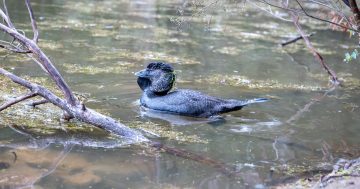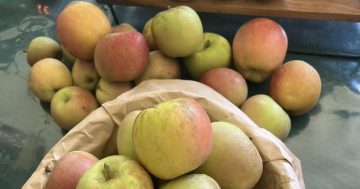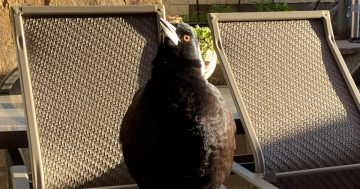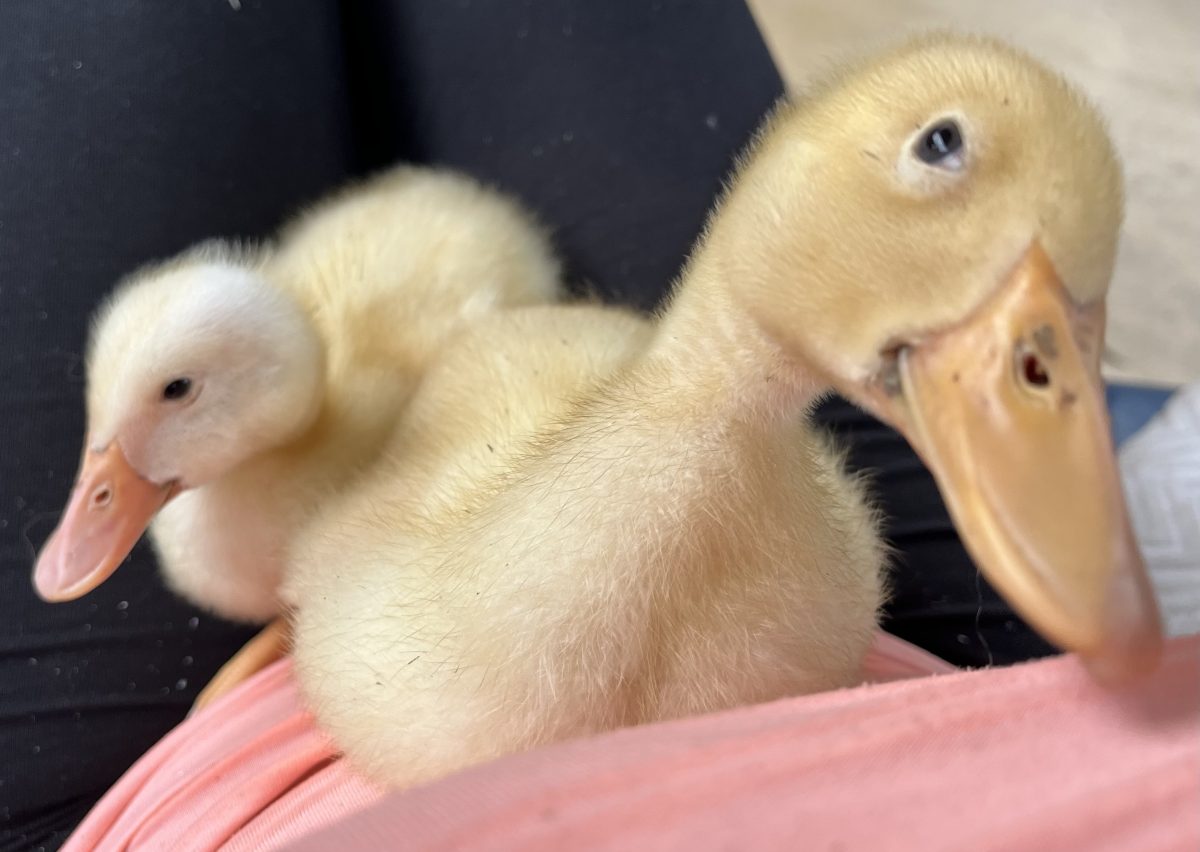
What’s up Mother Dukka? Photo: Kim Treasure.
Year in Review: Region is revisiting some of the best Opinion articles of 2024. Here’s what got you talking, got you angry and got you thinking this year. Today, Kim Treasure explains why she’s being driven quackers.
If you’ve followed my journey at all, you’ll know as a hobby farmer I make a pretty good brain surgeon.
My goats don’t respect fences, my alpacas don’t chase foxes, the hens barely lay and the horse thinks she runs the place – and, just quietly, she probably does.
So when some natural predator decided a couple of $20-a-head Pekin ducks would make a great snack, I was despondent but not surprised.
Ever the optimist, I whacked three duck eggs under a bantam and, Bob’s your uncle, 28-odd days later I had three small ducklings to keep the dream alive. Unbelievable! Never before have I had a 100 per cent success rate. And what’s more they thrived – although I hold grave suspicions two of the three are drakes who will grow up to simply eat, rape and pillage my garden.
Still, it was something.
Then my remaining duck went clucky in – wait for it – her actual pen. Anyone who has free range poultry will grasp the significance of this. Usually, no matter how beautifully you prepare their nesting boxes and fluff their straw, ducks and chooks will make their nests under some prickly shrub, in the bush, or inside the lawnmower catcher – anywhere you can’t find them but a fox can.
This duck was not only smart, she was feisty. Again, if you haven’t come face-to-face with the fury of a mother duck you probably don’t understand how a small hissing, pecking bundle of feathers can strike fear. Doesn’t matter, just let her be – how likely is it that anything will hatch?
After about a month, the peeping began. I was ecstatic. Actual ducklings, but how many? Days passed before mother duck was confident to leave the nest, followed by a brood of nine tiny yellow ducklings. All that was left in the nest were two unhatched eggs.
Seemed a pity to leave them, so I popped them under a heat lamp and, sure enough, 24 hours later, cheeping started coming from one of the eggs. As it grew louder and louder, small cracks began to show. I’ve never seen a duckling hatch in real time, so I whacked it into an egg cup and started videoing (yes, my kids have pointed out the irony of using an egg cup but there you go).
Five minutes later Peck burst into the world and, after a few wobbly moments, got to his feet and started doing what ducks do – eat.
Okay, 10 new ducklings – you’d think I’d be happy with that but no. That one remaining egg stubbornly refused to hatch. I became obsessed, googling madly to figure out what to do next. Was the humidity wrong, was the egg too cold, too warm, too anything? Was it just rotten, a ticking timebomb waiting to explode? Then I heard the first small weak peeps.
The countdown was on. Chicks start peeping once they have broken through an inner sac and are breathing air caught in a small pocket inside the egg. There is only enough air for a limited number of hours. It was a race against the clock and I’m not a very patient person.
I lasted 10 hours – then decided to help get that damn duckling out. Carefully candling the egg first to make sure I broke in through the airhole, operation evacuate duckling began. The peeps were getting weaker and weaker, so time was running out.
It’s not like peeling a boiled egg – there are too many delicate bits just below the surface – so the process was painstaking and not a little messy. Finally, Cheep was out but he wasn’t looking great. He was weak, unable to stand or hold his head up. Warm on a heat pad and under a light, he didn’t look likely to make it through the night.
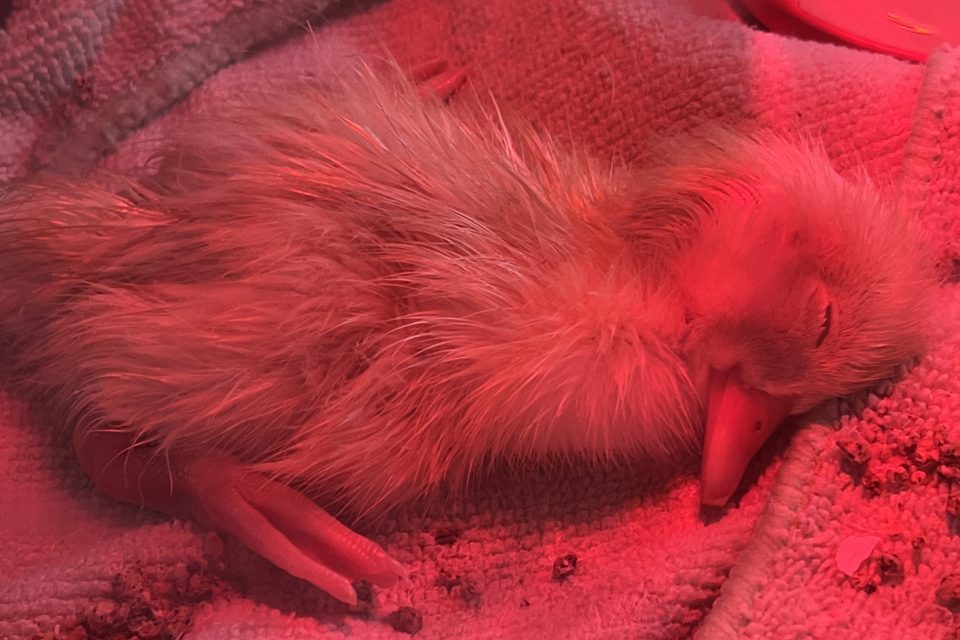
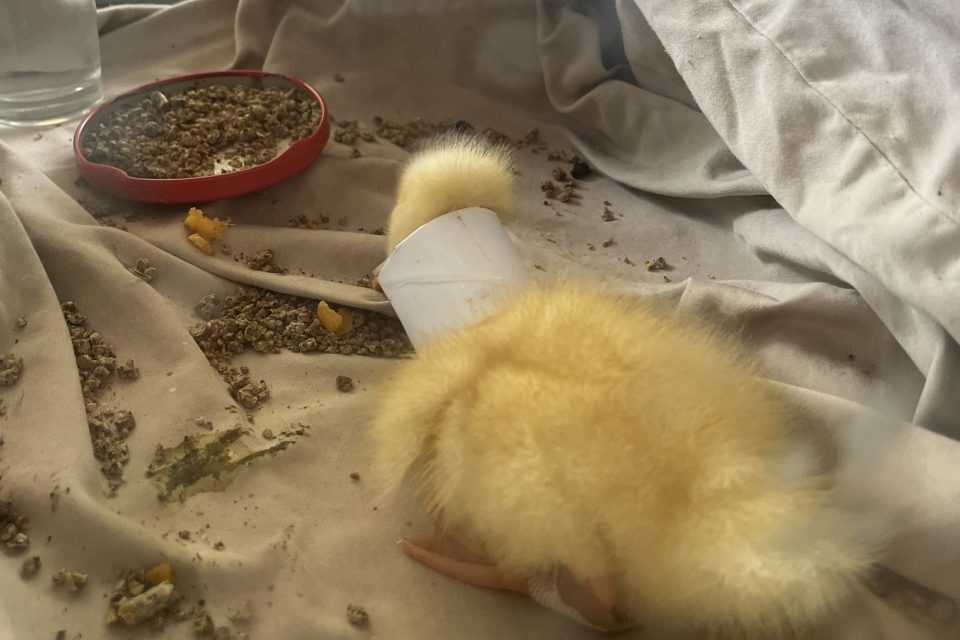
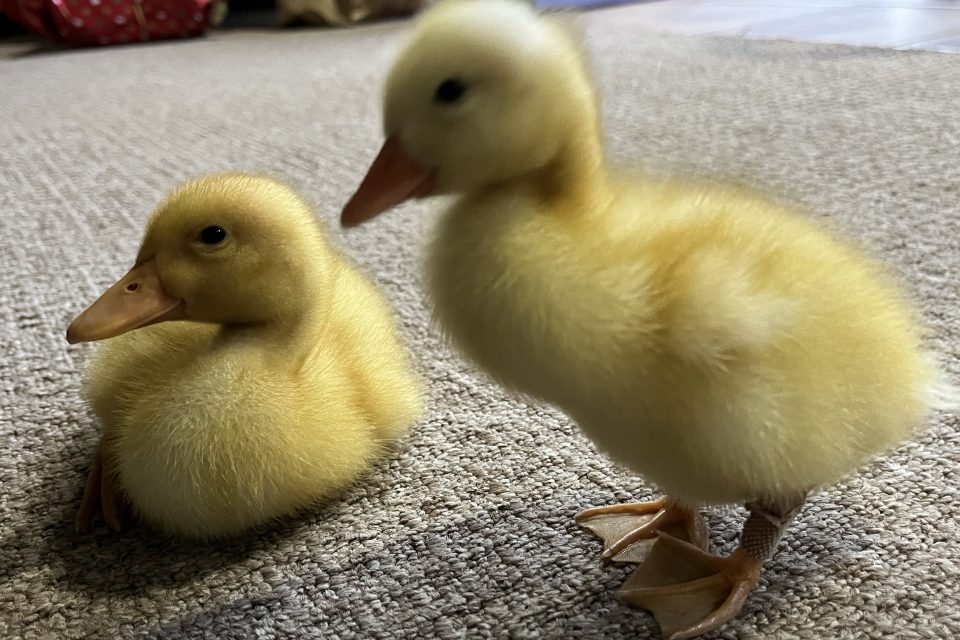
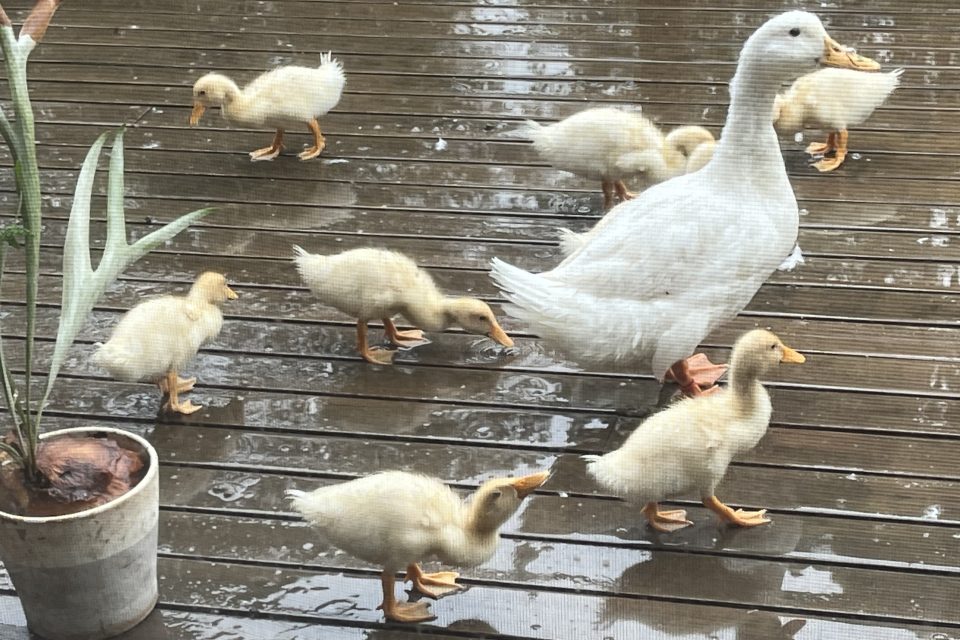
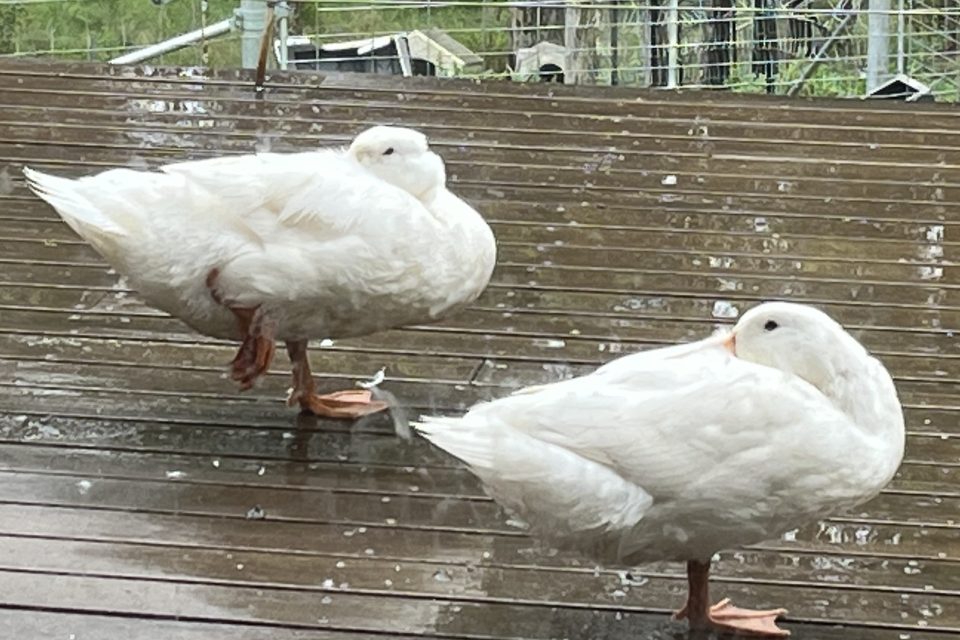
Of course, he did, and what followed was a week of broken nights, getting up to hold his head so he could drink, offering tiny tidbits to tempt his appetite, buying a feather duster to act as his mum. I fashioned tiny leg splints to get him on his feet, a tiny neck brace to hold his head up. He got the sort of nursing care usually reserved for presidents and kings.
Not only did he live, he thrived. He and Peck smash through so much food they are at least twice the size of their older siblings. After having these two, I don’t think much force-feeding would be required to make foie gras.
Of course, that will never happen, Peck and Cheep are now part of a band of 15 ducks – all of which have decided to camp on my back deck rather than the dam, and all of which produce their weight in duck shit each day. They quack incessantly for food and follow my every movement.
For my sins, it seems I will now forever be Queen of the Damned Ducks.
UPDATE: Of the 13 hatchlings, just three turned out to be female. Return on investment for a bag of poultry food is about half a dozen eggs.







